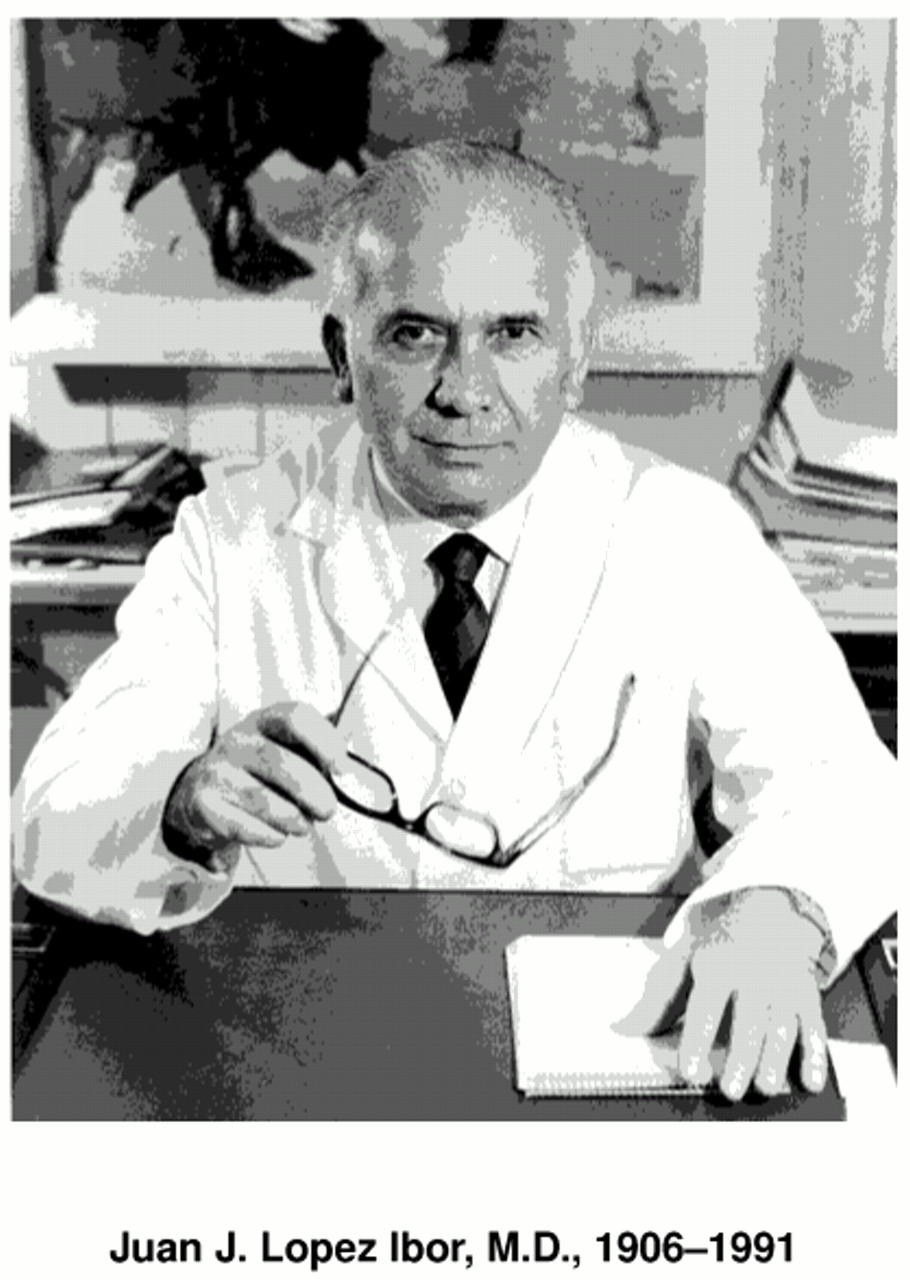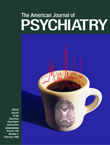Dr. Juan J. Lopez Ibor was born in Sollana, a small town in the province of Valencia, Spain, in 1906. His father was a local schoolteacher, and his mother came from a family of farmers. As his two older brothers had done before him, Dr. Lopez Ibor decided to pursue a career in medicine
(1). Early in medical school Dr. Lopez Ibor was exposed to the works of Sigmund Freud, which led him to develop a major interest in the field of psychiatry. Upon completion of his medical school education, he pursued postgraduate psychiatric training in Germany and France, where he was greatly influenced by the works of Kurt Goldstein, Kurt Schneider, Oswald Bumke, and Karl Jasper, among others.
Upon his return to Spain in 1932, Dr. Lopez Ibor began an illustrious academic career. He was 26 years old when he joined the faculty at the University of Santiago de Compostela Medical School. He would later join the faculty at the University of Salamanca Medical School and then the faculty at the University of Madrid Medical School, from which he retired. During his academic career Dr. Lopez Ibor was most prolific and creative; he contributed more than 300 scientific publications and 25 books to the medical literature
(2). In his first book, entitled
Lo Vivo y lo Muerto del Psicoanalisis, published in 1936, he openly criticized Freud’s work and conceptualized anxiety as being primarily a product of a biological process. According to Dr. Lopez Ibor, anxiety can authentically be understood to be the result of a physiological or organic disorder
(2).
In 1950 he published a book entitled
La Angustia Vital in which he described anxiety and anguish as two different phenomena. In this context, Dr. Lopez Ibor’s clinical conceptualization and description of anguish correspond quite well to our current understanding of panic attacks. Without question, Dr. Lopez Ibor was a scientist whose novel ideas and thoughts were much ahead of his time
(2).
In another book, entitled
Las Neurosis Como Enfermedades del Animo, published in 1966, Dr. Lopez Ibor advanced the concept of “thymopathy,” to which he attached a strong endogenous component. This concept would become quite relevant in today’s field of psychosomatic medicine. Along these lines, he also conducted pioneer work regarding masked depression and atypical depression
(3).
During his professional career Dr. Lopez Ibor sponsored a dualistic doctrine and embraced a strong anthropological and humanistic philosophy. In this context, he often incorporated relevant cultural and humanistic concepts in his clinical case discussions. In 1966 he was internationally recognized and honored when he was elected the third president of the World Psychiatric Association. In the same year he organized the Fourth World Congress of Psychiatry, held in Madrid
(4).
I have had the opportunity to discuss and review the scientific and professional contributions of Dr. Lopez Ibor with many of his colleagues and students. His image as a psychiatrist is legendary in Spain, as well as highly respected in Europe and the rest of the world. In addition, his professional image as a clinician, educator, scientist, and scholar has made him an outstanding role model for many of us in the field of psychiatry.


